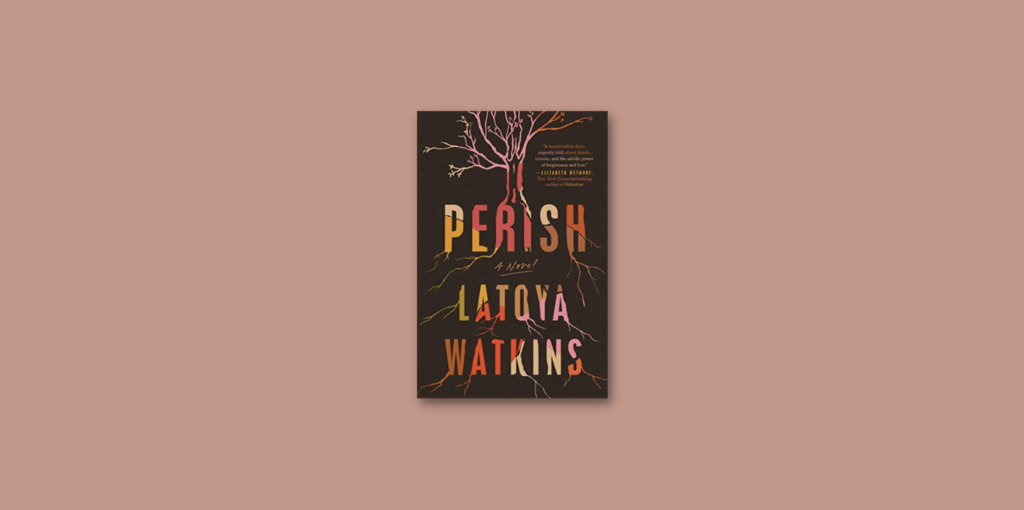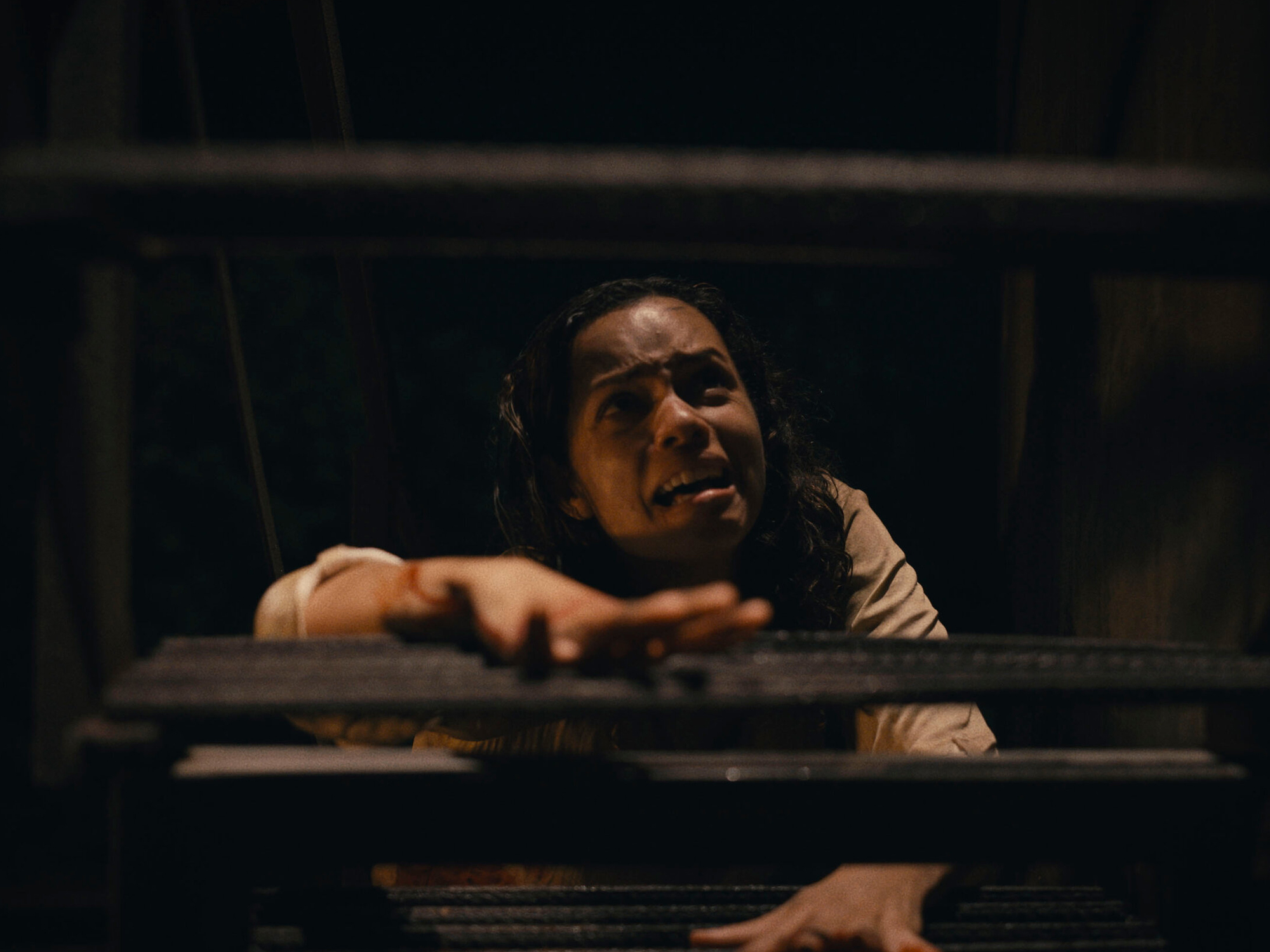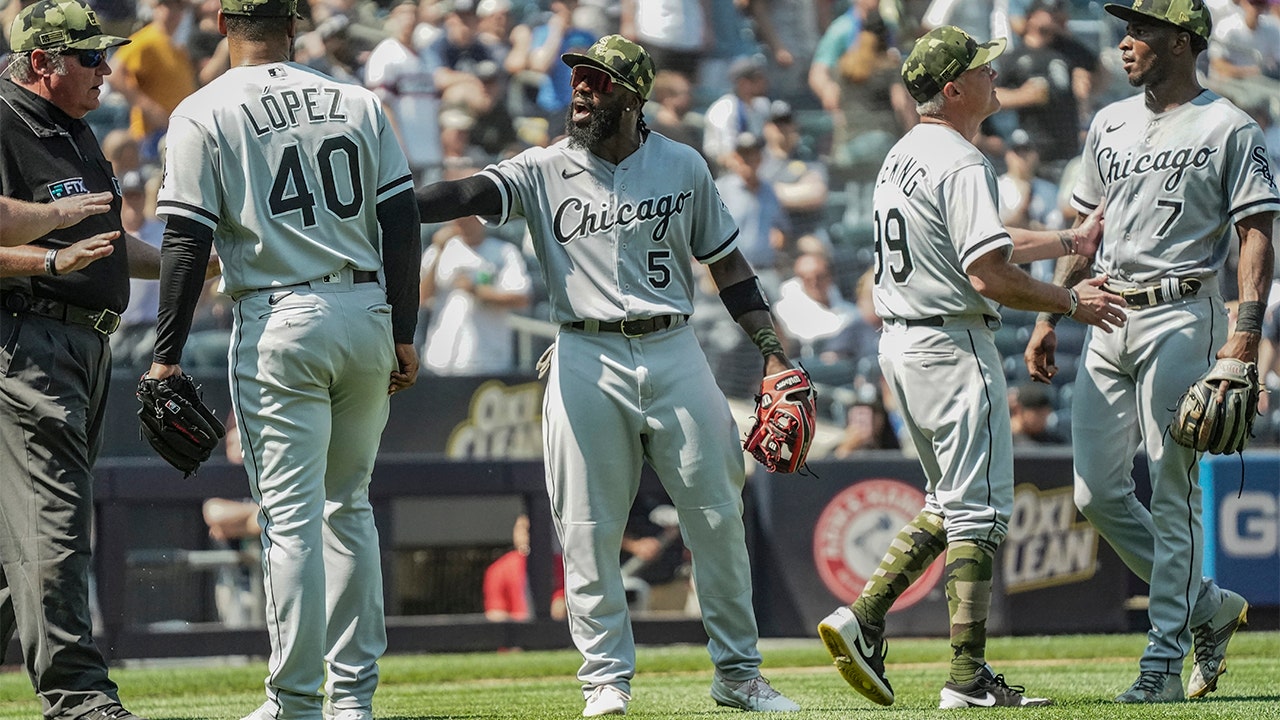LaToya Watkin’s exquisite debut novel Perish examines the painful legacies buried deep within one Black family from West Texas. As the members of the Turner family gather at matriarch Helen Jean’s deathbed, shameful secrets begin to surface. Watkins is master at exposing how structural forces can inflame and perpetuate the cycles of trauma. Her depiction of Turner family examines the way that truth can both heal our wounds and force us to grow.
I was honored to speak with Watkins, a fellow Texan, over a lunchtime Zoom. We spoke about matrilineal storytelling, the burden of parenthood, and the “puzzle” of writing Perish.
Shannon Perri: In a recent interview with Debutiful, you mentioned that the initial spark for Perish was its Texas setting. Could you speak to how the fictional West Texas town of Jerusalem served as the novel’s catalyst?
Latoya Watkins: I’m from West Texas. I don’t remember living there, so it’s never felt like home to me, but I’ve often visited, and it’s always been home to my parents. When I was in grad school as a first-generation college graduate, there was no blueprint for going to school, for choosing what you study. When it was time to sit down and create a master’s thesis and then a dissertation, it was really difficult. I just started researching things that interested me. Someone mentioned the Great Migration, and I was like, Yeah, but people have written about that.
Then I started thinking about my own family. I started asking questions and realized that I couldn’t trace my family back. I had to go to West Texas and visit the land and talk to people. A lot of the people who I talked to happened to be church folks. I started thinking about how we are anchored to place by religion and spiritualism, and then somehow it morphed into me looking at culture. There are a lot of small towns in West Texas. I started noting characteristics among them that were similar and that were distinct. What I ended up doing with Jerusalem is, instead of writing about just one place, I took that compiled list of similarities and created one place for dozens of small towns and small cities. That’s how Jerusalem became this fictional town.
SP: The book opens with teenaged Helen Jean, trying—yet failing—to self-abort a pregnancy caused by her own father. Throughout, the reproductive lives of women are central to the novel. Why was this terrain so important to explore as part of a story about intergenerational trauma?
LW: One of the questions that stood out to me when I was looking at Texas as a whole was, Who carries the history? How are stories, generational stories, are told? I can trace my grandmother’s back a lot further than I can my grandfather’s. I was able to hear those stories from her. And I think it’s because the fathers were silent. They would tell me their names, but that was it. It was the mothers who would tell the stories. In many ways, I wanted to explore motherhood for what I really think it is—this burdensome superpower. One of the things for me about becoming a mother that was so surprising is that when my children all 18 and became adults, I realized my love for them hadn’t diminished. My fears for them hadn’t diminished. It actually became harder because they weren’t in the home with me. I went back to my mother, and I was like, Why didn’t you tell me it only gets harder? You just hope that you’ve done everything that you could possibly do or taught them everything. There’s so much power in being a parent, but it doesn’t feel like power when you’re actually mothering. I know that the world is changing, but a lot of times it feels like the burden of parenthood rests—I don’t even care if there are fathers in the home—heavily on the mother. I wanted to explore that powerful state, but also the powerlessness of it.
SP: Perish also illustrates that motherhood is not always a choice.
LW: A lot of times, there’s either a lack of knowledge or choice in whether we’re becoming mothers. We often don’t even have the knowledge of what being a mother entails. If we look at the legacy of slavery and how close we still are to it, there are things still living in each generation that we’ve not caught up to. That we’re still exploring and dealing with. So I wanted to look at how a lack of access dictates the choices that the women from Jerusalem have in their lives. These women are making decisions based on their limited choices. Throughout the book, women are put upon in ways that shape their lives profoundly. Everyone from Helen Jean to Jazera, right? Her mother’s trauma is what she’s being reared in.
SP: The novel spans over half a century yet moves around in time and has several point-of-view characters. Were there any particular challenges in landing on the structure of the book? How did you decide what to reveal when?
LW: It was difficult to determine what to hold back. At some points I had to ask myself, Why am I concealing this? Is that necessary to the structure and plot and character development of the book? If things are not revealed to readers, I think that it should feel natural. One of the things that was hidden in some of those first drafts was who the father of Helen Jean’s first child was. That was something that I didn’t reveal until the end of the book. And then I was like, Why? It felt like I was trying too hard to hold it back, and it didn’t feel natural to me or to the narrative. So I knew that was something that needed to change, but it wasn’t until draft five or six that it did. In changing that, there was a lot of unwrapping and unraveling that I had to do, not just in the Helen Jean POV, but with all of the characters.
With every draft—and there were about 11 or 12—it was almost complete rewriting because there were so many perspectives. For a while, each perspective had its own document. Putting those together was like a puzzle. Some of the information was overlapping, so that had to be revised. At one point, I had to write everything out on this poster paper and tape it to walls and look at what I had and what needed to be removed and added or switched from one perspective to another. It was difficult. I wasn’t necessarily a puzzle person before this process, but it made me good at it and actually enjoy it.
SP: The toxicity of secrecy is one of the central themes of the novel. In speaking to this truth, the novel doesn’t shy away from shedding light on some of the most taboo subjects out there, such as abuse and incest. I think this book is going to help many people feel less alone with their complicated traumas. Was that one of your hopes in exploring this subject matter?
LW: I think it was. A lot of my ideas for the narratives and different plot points came from articles that I was reading, stories that I was hearing—and the things that I wasn’t hearing in those stories. I studied the foster care system and abuse and was digging through these stories that we never hear about. I looked through public information, these databases, like registered sex offenders and what they had done. It seems crazy now because it gave me nightmares, especially because I had children.
But one of the things that was so striking to me was the silence. Why are we not always walking around talking about the danger that people are in? I even went back to the ‘90s when we had all of these kidnappings in Texas—later on, these girls and boys were found in sheds and basements where they had been held captive for years. When they were returned home, the silence around that—those are life-altering periods in their lives and to have them ignored, not for our comfort, but just because a lot of us don’t know what to say.
It’s like when we’re dealing with death. Sometimes silence is how we handle the discomfort. I don’t think it serves as a path to healing. I wanted to look at that, and how there are taboos that we don’t talk about, that we place in a corner so that we can live in the world with each other and sleep at night. I don’t know that we can get past things or learn to deal with them if we just keep our mouths closed.
SP: The irony is that staying silent can actually make people less safe.
LW: Right?
SP: I appreciate your honesty around the profound dissonance that characters in the novel have to endure when they find out that someone they love is both a victim and a perpetrator. Not to excuse the behavior in any way, but a lot of perpetrators have been victims themselves. That’s just a reality for a lot of people and families. And what do you do with that? There’s not a clearcut answer, but not talking about it can’t help.
LW: Yeah, I don’t think it does. There was one story that I read about a man who had done these really heinous things to his girlfriend’s children. He was convicted and he spent the rest of his life in prison. He developed throat cancer while he was there and died. He came from a rather large family, so I went and found his family and talked to them. And they wanted to talk about everything except for what I had come to discuss. I didn’t want to discuss what he’d done. I wanted to talk about him and his childhood. But I think the memory of what he’d done—they couldn’t even talk about his childhood anymore. They couldn’t talk about his death. They didn’t have a memorial for him. He was buried in a pauper’s grave, something like that. They had been together their whole lives, and there had been tragic losses: their mother had died very young, they pretty much had raised themselves. So I was only able to create a narrative of his life based on what they were telling me about their own.
SP: Perish feels it belongs squarely in the Texas literary canon. What do you think makes a great Texas novel, and what would you like to see more of as far as literature from Texas?
LW: When I think about the Texas novel, I used to think about cowboys and cattle drives. Now, I like stories that aren’t as beautiful or as “country” as people think that the Texas story should be. No matter what people see on the news, I think Texas is a beautiful place. It’s huge and expansive, so the experience here is not a monolith. There are a lot of different experiences, and looking at those different experiences is what I’d like to see. And I’d like to see a lot more Black Texas stories because we’re here as well.




























































